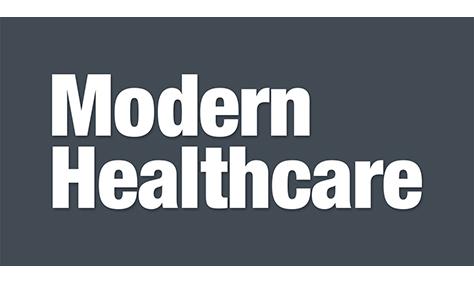Now is the time to prioritize medical research

If COVID-19 has taught us anything, it is that medical progress isn’t important; it’s profoundly important. Lives are at stake. Quality of life is at stake. Productivity is at stake. Economic and fiscal security is at stake.
The impact of medical progress on achieving these imperatives does not apply only to this pandemic. Think about Alzheimer’s, which is imposing its degenerative and deadly effects on 5 million Americans as we speak. Think about cancer—1.8 million Americans newly confronting it this year alone. Think about rare diseases, which affect more than 20% of the population directly, and all of us indirectly. Think about racial, ethnic and economic disparities in health and healthcare. These are the tip of the iceberg. Chronic, genetic and infectious diseases and debilitating conditions other than COVID-19 undermine well-being, compromise productivity and pose fiscal challenges as surely, if not as visibly, as pandemics.
So what should our nation do now, war-torn from COVID-19, but smarter because of it? We should capitalize on our nation’s extraordinary academic and private sector scientific capacity to blow away previous expectations about the pace of medical progress. We can and should fight harder to save lives.
What does this mean? This is what Congress and the Trump administration can and should do right now:
Reboot. Our nation needs and deserves another COVID-19 response/economic stimulus bill. COVID-19 has wreaked havoc; Congress and the White House have fought back with relief legislation and must continue to do so. As part of that stimulus package, our nation would be well-served if we replenish research resources the pandemic has depleted; provide assistance to patient organizations and other philanthropies funding research so their contributions to medical progress can continue; and pursue new financing mechanisms to close persistent gaps in high risk, high reward later-stage research.
Refuse to fail. It’s looking more and more likely that Congress will fall back on its old, dysfunctional ways and miss the Sept. 30 deadline for completing the fiscal 2021 budget, instead locking this year’s budget in place until sometime next year. The problem is: this year’s budget makes no sense for the next fiscal year. Our nation is different now, our needs are different. A strong nation rests on a strategic budget reflecting present circumstances; failing to put a fiscal 2021 budget in place by the Sept. 30 deadline simply cannot be an option.
Be flexible. As that budget is crafted, Congress and the White House should adjust the caps on fiscal 2021 spending to account for unanticipated COVID-19 and Veterans Affairs spending. The budget caps were put in place to sustain fiscal discipline, not put blinders on the budget process, especially when dramatic, unforeseen spending needs arise. To ensure there is room under the budget caps to meet urgent American objectives—like stepping up the ability of the National Institutes of Health and other key science agencies to support critical research across the nation—the pre-COVID budget caps must be adjusted.
Innovate, don’t isolate. The Trump administration and Congress are rightly concerned about instances in which U.S. researchers are accused of failing to meet foreign funding disclosure requirements and may be a party to a foreign government’s theft of U.S. intellectual property. Increased vigilance is a reasonable response to this situation, but the kind of innovation that makes our nation the global economic and R&D leader doesn’t take place in a vacuum, and the isolationist path the administration and some in Congress want our nation to take—choking off long-standing visa programs; profiling students by race and ethnicity—runs counter to American values, global economic competitiveness, and our nation’s ability to work side-by-side with the global community when global threats arise.
The bottom line is that the health of our nation’s R&D enterprise is a bellwether for our ability to fight back and win against diseases that otherwise rob us all of health, hope and time. Let’s learn from this unimaginably destructive pandemic and do what it takes to emerge from COVID-19 as a science-committed, science-strong nation emboldened to fast-forward the pace of medical progress.
Written by Mary Woolley, president and CEO of Research!America and Eleanor “Ellie” Dehoney, vice president of policy and advocacy at Research!America, a not-for-profit alliance that advocates for science, discovery and innovation to achieve better health for all.




